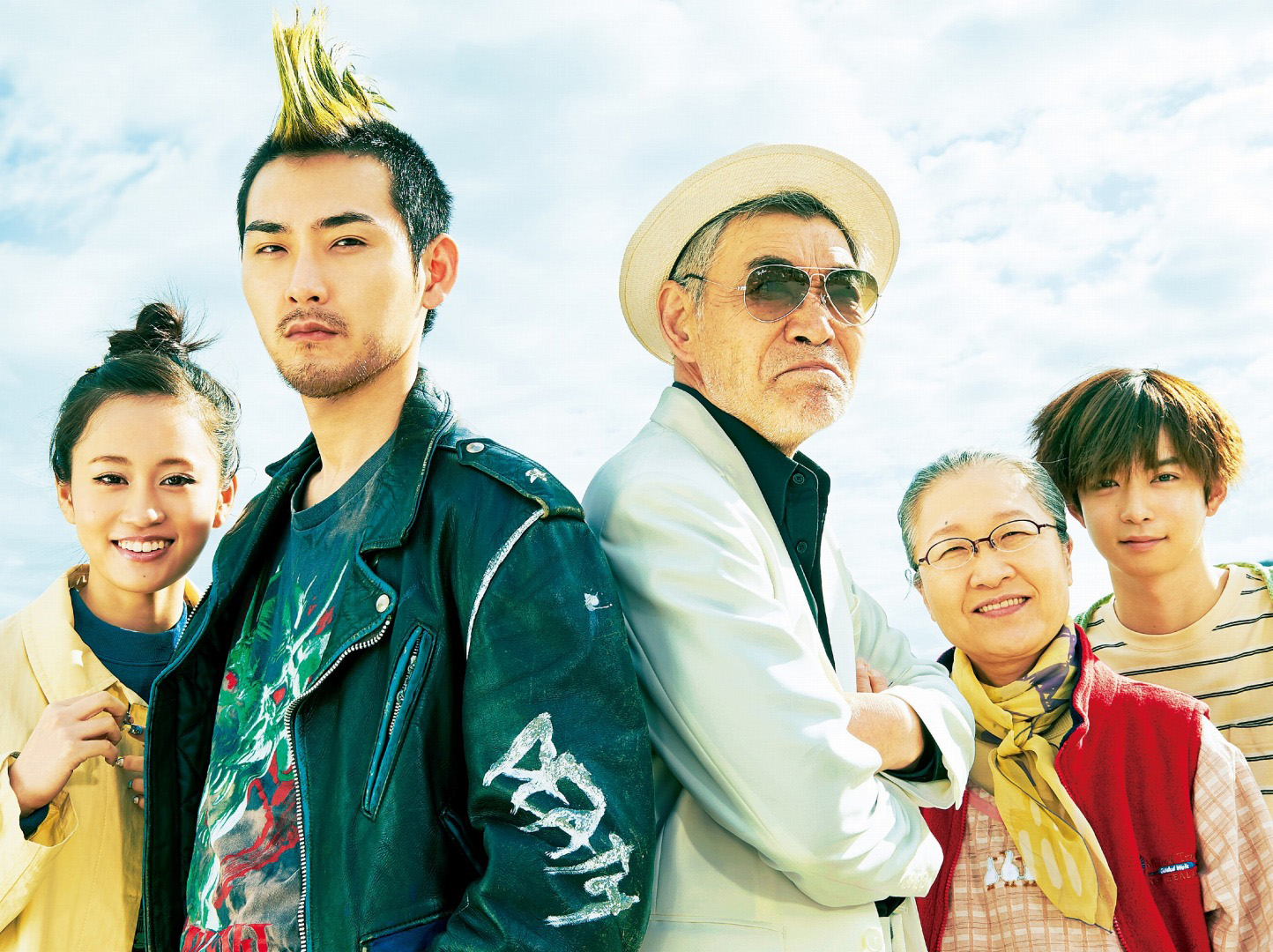Millions of Japanese have come from the countryside to find their fortunes in Tokyo, with most arriving in the postwar boom when jobs were everywhere and the future looked bright. But many, like the punk rocker hero of Shuichi Okita's offbeat, warm-hearted family comedy "The Mohican Comes Home" ("Mohikan Kokyo ni Kaeru"), ended up making a U-turn, however permanent or temporary. This has been a theme of Japanese films for decades, as indicated by the title's reference to the 1951 Keisuke Kinoshita classic "Carmen Comes Home" ("Karumen Kokyo ni Kaeru").
The film, based on Okita's original script, has elements in common with these older films, but also with the present-day actualities of rural escapees' lives. The Mohican-sporting hero, Eikichi (Ryuhei Matsuda), who has been trying to make it as a musician in Tokyo for seven years, ends up on a boat headed back to his beautiful home island in the Seto Inland Sea, with his pregnant girlfriend Yuka (Atsuko Maeda) in tow. One reason for his return is that his bandmates are tiring of the scuffling musician's life and are ready to move on to more stable adulthood, health insurance included.
On arrival, Eikichi gets less than a warm welcome from his irascible father (Akira Emoto), who tells him to cut his hair and get a job — demands that Eikichi rejects. Then Dad is diagnosed with terminal cancer and Eikichi, as the oldest son, feels obliged to take over the family liquor store. So far, so typical.
















With your current subscription plan you can comment on stories. However, before writing your first comment, please create a display name in the Profile section of your subscriber account page.